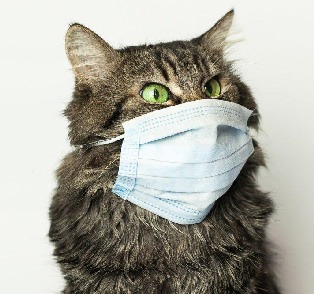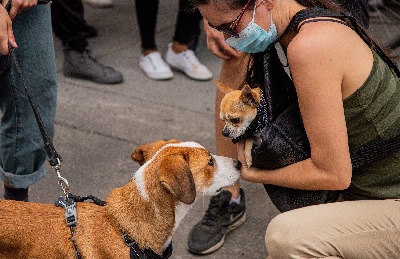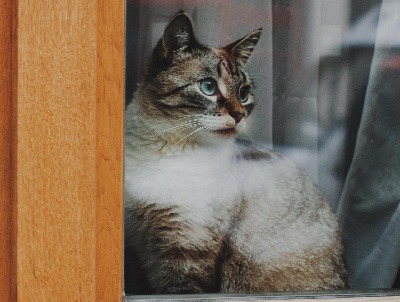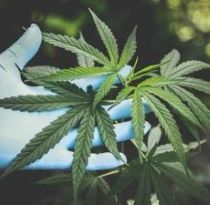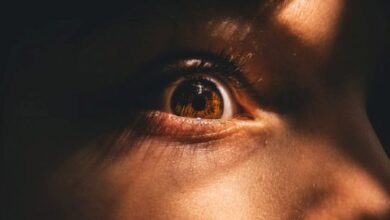How To Take Care Of The Animals During Pandemic
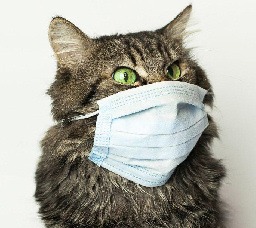
The only way to catch the infection is if an infected person sneezes on your pet’s fur, and you stroke him and then start rubbing your nose, lips, or eyes. The main recommendation of the World Health Organization is: after contacting not only with animals but also with animal products, you should wash your hands, use antiseptic, and do not ever touch your face.
Seven Tips for Being at Home With Your Pet During the Pandemic
- In case of infection or even before confirmation of infection COVID-19, ask family members or friends to take your pet from you. Think in advance of anything that might come in handy for someone taking care of your smaller friend. If the Coronavirus is still confirmed, it is better to avoid contact with the animal until complete recovery.
- Of course, you should not forget about hygiene. Besides, if you are infected, try to limit communication with people and animals and organize life without going outside as much as possible.
- Remember not only personal hygiene but also your pet’s hygiene is essential. Wash your dog’s paws after walking. It is also worth bathing much more often than usual, sometimes using a special disinfecting shampoo. Make sure to moisturize the paws after washing – a good balm does wonders – you can check out some good options here.
- If you one day choose to take your pet to the veterinarian, make an appointment in advance. Do not spend too much time in clinics and hospitals. Besides, if the animal contacted a person infected with Coronavirus, you should immediately inform the veterinarian about it.
- Try to avoid the communication of your beloved pet with other people while walking. Keep a greater distance than usual while strolls. Do not let petting or picking up your pet as you do not know if that person is infected. The COVID-19 can be transmitted through the fur of a pet that you pick up after a walk.
- Review food supplies – be sure that your pet’s care products and food are sufficient for the quarantine. But do not panic – buy only what you need.
- Try not to take cats for walks during quarantine, as they can entirely survive “walks” only around the house. Do not put yourself and your pet in danger once again.
How to Take Care of Your Pet if You Are Sick?
Well, in case the owner of the pet got infected. In that case, you should reduce communication with the pet or stop altogether – give all the responsibilities of caring for it to your close people or family.
If no person can take care of your animal or it cannot be without you for a long time, you should at least reduce contact. Besides, do not forget to wash your hands before and after touching pets. Try to avoid games and other unwanted interactions with your pet, which involves close contact or kisses. There is no exact information that animals carry that genome of the Coronavirus, but they can spread it for sure.
Tips for Feeding Pets During the Quarantine
- If, for any reason, you cannot purchase the food that you usually give your pet, in no case, do not change the diet abruptly. Better to make changes step by step, diluting the old feed with new until you switch entirely to the new one within a week.
- Food should not remain in the bowl for long, as wet food can become a breeding ground for pathogens.
- Try not to overdo giving snacks. The number of meals should not be more than 10% of the daily food norm. According to recommendations from ThePets to determine the appropriate calorie density it needs to consider your dog should gain or lose weight. For example if your senior dog is losing weight it is normal to feed about 350 calories per cup. Of course, when you spend every day with your pet from morning till night, it brings you together. And naturally, you want to encourage the pet with food all the time. However, it is essential to adhere to healthy food intake to maintain your pet’s well-being.
- Water is likewise vital. It should always be fresh and readily available for the pet. If you think, change the water after a few hours or not – it is better to change since there will be no harm, but it can protect against bacteria that have possibly settled there.
Can my Pet Get Infected?
According to virologists, the strain of Coronavirus that infects humans does not spread to pets – they should be wary of other varieties of it. Cats and dogs cannot get infected from us, and we cannot get infected from them. It is much more likely to catch an infection from another person than from your dog.
Tests for SARS-CoV-2, which were passed by pets with suspected Coronavirus, showed only the presence of a viral genome, not live viruses that settled and multiplied in the body. Therefore, a positive result does not indicate that the cat or dog has contracted COVID-19. It does not mean, however, that the pets are not in danger. Firstly, they can carry other viruses on their paws, so it is important to observe hygiene – clean pets’ paws after a walk, do not contact them once again to avoid saliva ingress. Scientists warn that the virus is not found in the soil, but can persist on the trash that the dog sniffs while walking. Secondly, antiseptics are dangerous for pets, which owners often use to disinfect pets’ paws.
Do I Have to Protect my Pet with a mask?
For pet protection during the pandemic, it is pointless to put on a mask on a dog or cat and use a sanitizer. Considering that the animal licks its paws, the antiseptic can enter the body, which will have unpleasant consequences. Besides, it dries out the skin on the paws and neutralizes the protective layer, causing cracks and other problems. Scientists warn about the dangers of using an antiseptic on animals, indicating the increased cases of contacting a veterinarian with chemical burns, coma, and alcohol poisoning, which disinfectants contain.
Do not use antiseptics for disinfecting animals – pure soap or specialized shampoo for pets is an excellent choice for this task.
Specialists advise pet owners to save an antiseptic for themselves and wash their hands more often after each contact with an animal, not expose their face if the dog or cat wants to express their gratitude. It would be best if you were even more careful with other people’s pets – do not let them be too close to you.
In Case the Pet’s Behavior Has Changed
Another danger that lies in waiting for pets is the regular presence of the house owners in quarantine. On the one hand, animals are happy with increased attention, but on the other hand, it is also severe stress for them. They are accustomed to living according to a schedule when they are alone for half a day and go about their business. And here is the owner, who continually squeezes the pet, not allowing it to sleep. Do not be offended if a cat or dog hides in a far corner and does not crawl out, embarrassed by the attention – perhaps they need to be alone.
On the contrary, after the abolition of quarantine, you need to pay more attention to pets, because you are always there. It is necessary to accustom animals to loneliness in advance so that the absence of the owner then does not cause severe stress.

